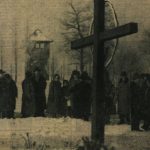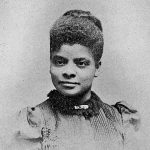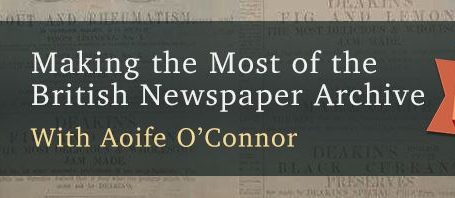We have had another busy week here at The Archive, where the presses don’t stop whirring! In all, we have added another 98,718 brand new pages, with six brand new titles joining us this week.
You’ll find new titles covering both the north and south of England, the south of Wales, and specialist titles that focus on the temperance and trade unionism movements in the Victorian era. So read on to discover more about our very special new titles of the week, as well as the seventeen existing titles we have added new pages to.
Meanwhile, we also delve into a typical Saturday night in the cities of Manchester and Newcastle, but with a twist. Carry on reading to discover what was going on in Manchester and Newcastle on a Saturday night some 156 years ago.
Register now and explore the Archive
Heading up our new titles of the week is the Alliance News. Established in 1854, and appearing every Saturday, this newspaper circulated ‘throughout the kingdom’ and was the ‘organ of the United Kingdom Alliance.’ But what exactly was the United Kingdom Alliance? Well, to give it its full name, the United Kingdom Alliance for the Suppression of the Traffic in All Intoxicating Liquors was a temperance movement founded in Manchester in 1853.
The idea of Irish cotton manufacturer Nathaniel Card (1805-1856), the United Kingdom Alliance went beyond other temperance movements of the time by actively campaigning for the legislative suppression of the sale of alcohol. The organisation’s first president was Sir Walter C. Trevelyan, and in 1854 the group began the publication of politically neutral moral newspaper the Alliance News. By 1858 the United Kingdom Alliance had 4,500 members, and in 1942 it was renamed the United Kingdom Temperance Alliance Ltd. It exists today as the Alliance House Foundation.
Alliance News | 3 February 1883
So what could you expect to find within the pages of the Alliance News? Well, in amongst Alliance news from England, Scotland and Ireland, and ‘General News of the Week,’ you could find examples of the evils of alcohol consumption. In a column entitled ‘Barrel and Bottle Work or Track of the Liquour Traffic – a Few Recent Specimens,’ the Alliance News gives lengthy examples of the violence brought about by the consumption of alcohol.
For example, it features such headlines as ‘A Man Stabbed Through Drink,’ ‘A Squabble at a Funeral Through Drink,’ ‘A Police Officer Fined Through Drink’ and a ‘Husband Brutalized Through Drink.’ The Alliance News also features long form reports, for example one entitled ‘Saturday Night in Manchester,’ which you can read about later in this blog.
From temperance to trade unionism now, and our next new title, the Settmakers’ and Stoneworkers’ Journal. First published in Aberdeen on 1 June 1891, this publication was the official organ of craft and trade groups connected with various types of stonework and quarrying. Settmaking was the cutting of quarried stone into rectangular blocks for paving.
Settmakers’ and Stoneworkers’ Journal | 1 July 1891
The first edition tells of how the journal had been ‘called into existence at the earnest desire of the members of the Settmaking industry.’ There was at the time a similar publication circulating ‘extensively in both the United States and Canada’ representing that particular industry, and so it was now time that the settmakers of the United Kingdom had their own journal.
But what were the aims of the Settmakers’ and Stoneworkers’ Journal? The first edition enlightens us as follows, telling us how the journal shall:
…lead us to become more enlightened in the true principles of Trade Unionism, whereby we may yet hope to see a close federation of all classes of stoneworkers…We shall have reports from all quarters as to trade, as to questions of supply and demand…We shall advocate no particular side in politics.
Settmakers’ and Stoneworkers’ Journal | 1 December 1922
So featured within the pages of the Settmakers’ and Stoneworkers’ Journal were various items of correspondence, alongside branch and union news. You can find such articles as ‘The Stone Trade at Dalbeattie,’ ‘Settmakers Past and Present,’ and ‘New System of Street Paving.’ The journal also featured the results of tenders for street paving across the United Kingdom.
We move now to our new regional titles of the week, starting with the Northern Guardian (Hartlepool). First published on 1 October 1891 in Hartlepool, County Durham, this daily newspaper cost just one halfpenny. Its first edition follows ‘precedent in explaining our intentions,’ publishing in ‘a commercial centre of present, and, we believe, future importance.’
Appealing to the ‘hard-headed men’ of Hartlepool, who ‘have attained their varying degrees of financial competence by attention to the first principles of commercial development,’ the Northern Guardian (Hartlepool) lays out its intentions as follows:
Our particular programme is a upholding of the Constitution of this happy country of ours… We have no sneer, beyond that little turning up of the nose, for Radicalism.
Northern Guardian (Hartlepool) | 25 February 1892
Trusting to ‘have no enemies,’ the Northern Guardian (Hartlepool) contained the ‘Latest News’ – down to ‘This Morning’s News’ – as well as ‘To-Day’s Shipping’ news, including the latest arrivals and sailings from the port of Hartlepool. It also contained the latest sporting news, updates on ‘Local Amusements,’ letters from readers, and serialized fiction.
Our next new title of the week is the Nantwich, Sandbach & Crewe Star. Published in the Cheshire market town of Nantwich, this halfpenny newspaper was established in 1888 and appeared every Saturday, claiming to have a circulation in the district of ‘4,000 more than any other paper.’
Nantwich, Sandbach & Crewe Star | 29 September 1888
Going to ‘every home’ in the area, the Nantwich, Sandbach & Crewe Star contained such sections as ‘Star Twinklings,’ ‘What We Think,’ ‘Household Hints’ and ‘American Humour.’ It also featured a ‘Children’s Corner,’ with puzzles and poetry for the newspaper’s younger audience. Containing news from local organisations such as Crewe Town Council and Nantwich Board of Guardians, it incorporated ‘Local Anecdotes,’ such as this one: ‘Suspicious Meat Case at Sandbach.’
Our penultimate new title of the week is the Gravesend Journal. First published on 6 July 1864 in Gravesend, Kent, this Conservative weekly appeared every Saturday, costing one penny and circulating in ‘Gravesend and district.’ The inaugural edition explains the need for a Conservative newspaper in the area:
This journal has been commenced at the request of numerous influential Conservatives, to supply a want which has been long felt of an advocate of Conservative principals in the press in the towns of Gravesend and Dartford; and their respective neighbourhoods; and when it is considered that in two such large districts, containing so many good Conservatives, the only local newspapers advocate Radical opinions, it must be admitted that a Conservative newspaper was much wanted.
Gravesend Journal | 27 August 1887
Promising to advocate Conservative principles ‘with firmness,’ the Gravesend Journal also vowed to give ‘utmost attention…to matters of local interest and importance.’ To that end the newspaper featured items regarding local intelligence, such as news from the Board of Guardians, as well as ‘County Intelligence.’ You could also find ‘Sporting Intelligence’ in its pages, with an emphasis on cricket and yachting. Finally, the Gravesend Journal also contained reports on ‘Wills and Charitable Requests,’ ‘Literary Selections’ and local railway timetables.
Our final new title of the week is the Swansea Journal and South Wales Liberal. Founded in 1840 and published in Swansea every Saturday, this Liberal publication circulated in ‘Swansea and the district.’ Costing one halfpenny, the Swansea Journal featured all the latest news from the various quarters of Swansea, from the Swansea Hospital Committee to the Swansea Board of Guardians, from the Swansea Watch Committee to the Swansea Library Committee.
Swansea Journal and South Wales Liberal | 22 June 1895
Brimming with local news, with reports like ‘Pretty Wedding at Neath,’ the Swansea Journal contained serialized fiction as well as notices of births, marriages and deaths.
As for our updated titles this week, well there are seventeen of them! From India (Indian Statesman) to Ireland (Evening Irish Times), from Wales (Bargoed Journal) to Northern Ireland (Belfast Weekly Telegraph), our updated titles cover the United Kingdom, Ireland and beyond. Also of particular note are the over 37,000 pages that we have added to the Herts and Essex Observer.
Saturday Night in Manchester and Newcastle – 1865
The Alliance News, in its crusade for the prohibition of the sale of alcohol, paints a vivid picture of the everyday life of the working men and women of Britain. In various long form articles, it describes what a Saturday night for these ordinary people was like in cities such as Manchester and Newcastle, albeit it from heavily moralising perspective.
In January 1865, a report appeared in the Alliance News entitled ‘Saturday Night in Manchester,’ where the writer advised:
Those who wish to see something of working-class life out of the factory or the workshop should visit Ancoats, Oxford-road, Oldham-road, Deansgate, Salford, and similar places on a Saturday night.
Alliance News | 14 January 1865
The writer moves with the ‘ragged, dissolute, drunken and profligate horde’ along the Oldham Road, noting how ‘the buildings at every street corner have been converted into public-houses or into beershops, from which issue the sound of drunken revelry or blasphemous utterances.’ He then finds himself in Deansgate, where the crowd is ‘very busy and numerous,’ rendering the ‘footway…almost impassable.’ He then sees a sign for a ‘select harmonic meeting held every Saturday evening’ in one of the side streets, and inevitably bends his steps towards:
…a dismally-lighted passage, and stumbling up a woefully ricketty flight of stairs…Opening a little door we find ourselves in an atmosphere of tobacco smoke so thick and heavy…The room is closely crowded with men, women, boys and girls, belonging principally to the operative class, who are busy partaking of ale, or gin and water, or in swelling the refrain of the song which is being delivered with more energy than melody by one of their own class.
‘Waiting for the Public House to Open’ | Graphic | 10 January 1874
The writer is appalled by what he sees here:
Nothing is more pitiable than such a scene. God forbid that we should attempt to deprive any working man or woman of the few opportunities which they possess for recreation; but surely that recreation is not to be found in such places or in those dancing salons, where the pure and virtuous factory is tempted, in an evil moment, to commingle with the crowd of profligacy and vice which surges up and down before her, or to listen to words which in a purer and less upas-like atmosphere, would cause her cheeks to mantle with blushes of honest indignation.
Illustrated Police News | 2 April 1887
Similar moral outrage was felt by the Rev. J.C. Street, who delivered a lecture entitled ‘The Night-Side of Newcastle‘ in 1865, which was printed in the Alliance News. In it, the Reverend describes a ‘Saturday Night’s Walk among the back streets’ of Newcastle:
Here were little dirty shops, choked with a perfect medley of things; public-houses and beershops, full to overflowing with tipplers; girls and women standing at the doors of many of them, acting as lures to youths and men. Out of these public-houses men and women were coming drunk and incapable. Here a husband was remonstrating with a drunken wife; there a wife and daughter, or friend, were trying to persuade a drunken man to go home; while in another place, a crew of them were laughing, swearing and blaspheming together. It was a sort of Pandemonium.
Alliance News | 11 November 1865
The Rev. J.C. Street, however, does seem to understand the lure of such places, the public houses which were ‘well-lighted’ and ‘looked cheerful and attractive:’
To say nothing about the terrible attractions of the drink, and the power it excises over its deluded victims, is it wonderful that such places, which provide cheerful company, a warm fireside, and merry music, should be full of customers? Can you expect men and women to stay in the miserable kennels provided for them in the thickly-clustered houses near to the Quayside?
The Bishop Blaize public house | Illustrated London News | 10 July 1852
For many working men and women, Saturday night was the only opportunity they had to escape the rigours of their harsh working routines, and so it was little wonder that they found themselves in the public houses which had been created to cater for them.
But whatever the various rights and wrongs of the scenes in Manchester and Newcastle, they are important portraits of the life of everyday working people that we might not otherwise find than in our newspapers. It also shows the strong views of those involved in the temperance movement, and why it had such strong support in the Victorian era. It also demonstrates the prejudices towards the working classes – that they were some profligate mass, perhaps incapable of understanding how to better themselves. Because if they were to better themselves, that would upset the status-quo and be tantamount to revolution.
New Titles
Title |
Years Added |
| Alliance News | 1865, 1877-1883, 1885-1889 |
| Gravesend Journal | 1864-1892 |
| Nantwich, Sandbach & Crewe Star | 1888, 1890-1891 |
| Northern Guardian (Hartlepool) | 1891-1895, 1897-1898 |
| Settmakers’ and Stoneworkers’ Journal | 1891-1913, 1915-1933 |
| Swansea Journal and South Wales Liberal | 1895, 1901-1902 |
Updated Titles
This week we have updated seventeen of our existing titles.
You can learn more about each of the titles we add to every week by clicking on their names. On each paper’s title page, you can read a FREE sample issue, learn more about our current holdings, and our plans for digitisation.
Title |
Years Added |
| Bargoed Journal | 1904 |
| Belfast Weekly Telegraph | 1915-1916, 1918-1922 |
| Blandford Weekly News | 1890, 1892 |
| Cashel Gazette and Weekly Advertiser | 1865-1866, 1868-1870 |
| Colne Valley Guardian | 1898-1906 |
| Dewsbury Chronicle and West Riding Advertiser | 1894-1895 |
| Evening Irish Times | 1892 |
| Herts and Essex Observer | 1939-1979 |
| Indian Statesman | 1875 |
| North Cumberland Reformer | 1890-1891, 1893, 1898 |
| Northern Weekly Gazette | 1896, 1899 |
| Penistone, Stocksbridge and Hoyland Express | 1921, 1929 |
| South Eastern Gazette | 1816, 1915-1918 |
| Stockton Herald, South Durham and Cleveland Advertiser | 1892 |
| Warrington Examiner | 1889 |
| Weymouth Telegram | 1893, 1895-1896, 1899, 1901 |
| Y Tyst | 1881 |

















